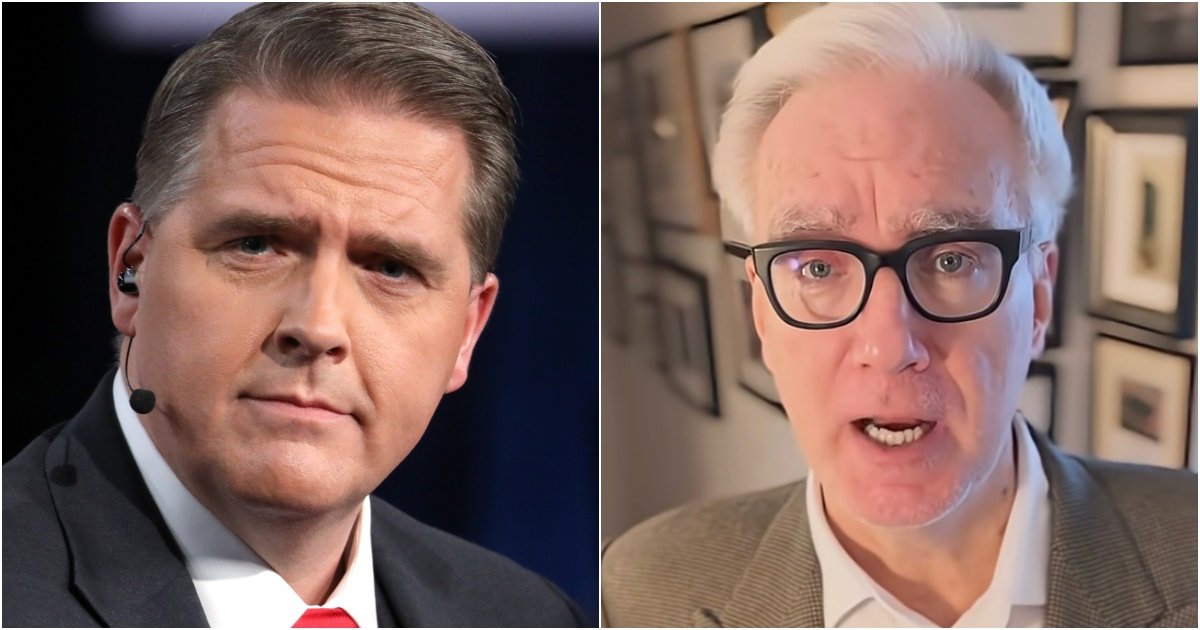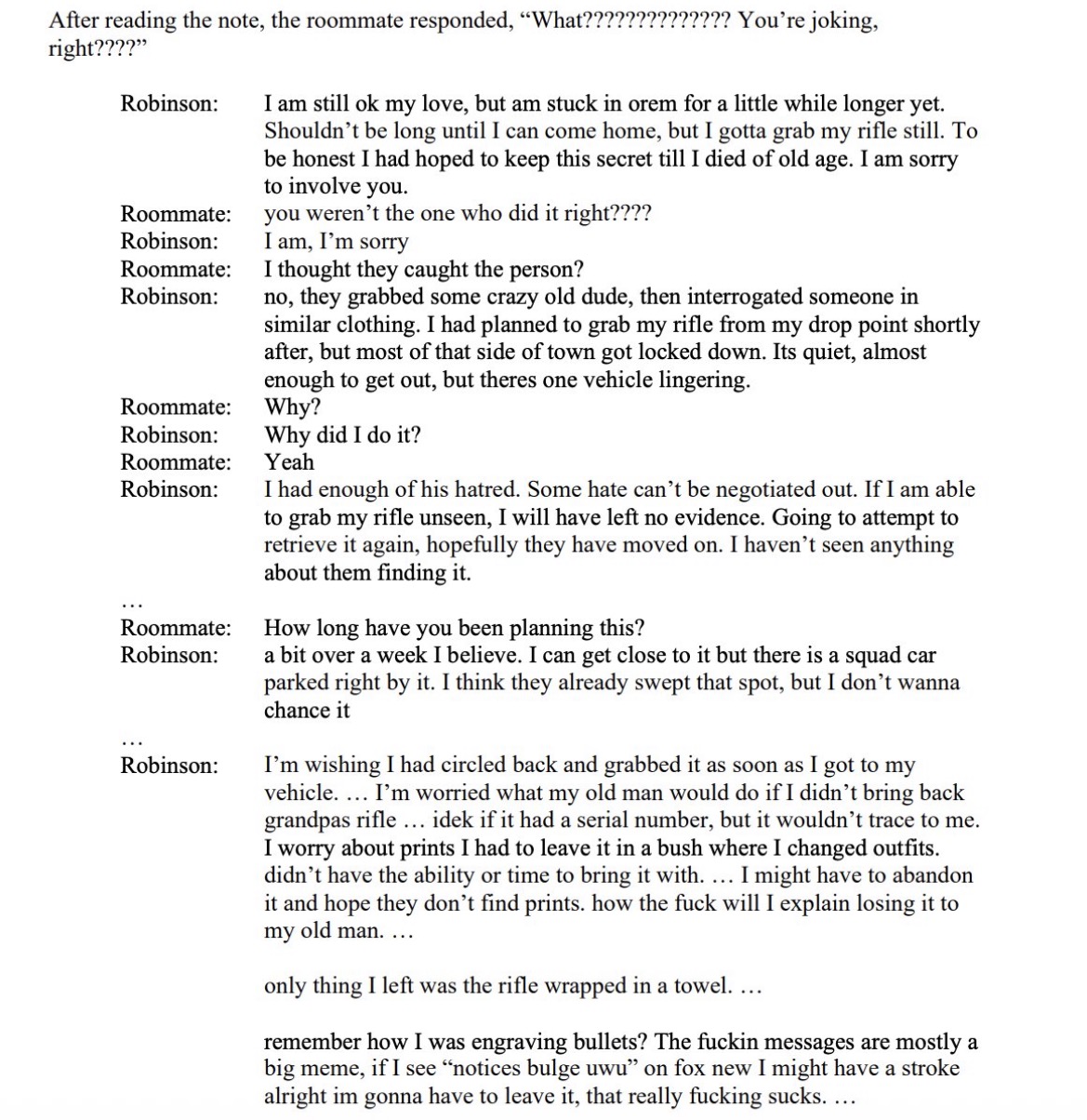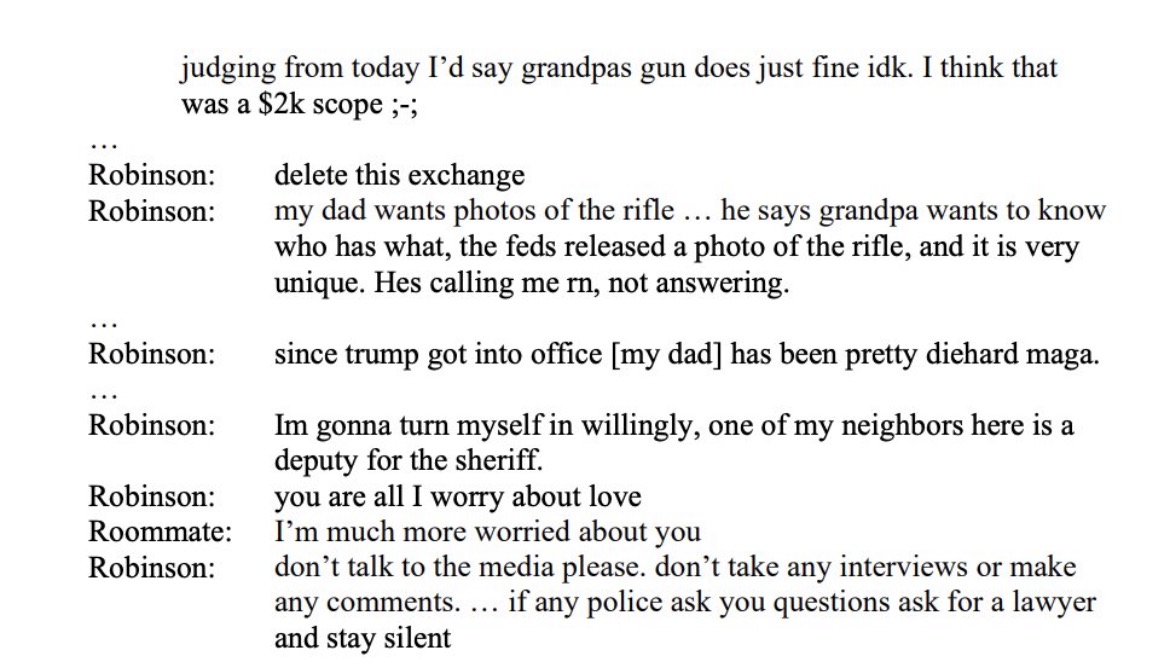Politics
Former U.S. Space Force Officer Wants to Serve His Country Again, But Who’s Going to Extend a Helping Hand? President Trump, Defense Secretary Hegseth, or Air Force Secretary Ashworth?

 Image: Wikimedia Commons (U.S. Space Force photo by Joshua Conti)
Image: Wikimedia Commons (U.S. Space Force photo by Joshua Conti)
Retaliation for refusing the once-mandated COVID-19 shot no longer has a place in today’s U.S. military. Careers were destroyed, and here’s one of the most egregious examples.
Joshua Zermeno enlisted in the Air Force in 2010. After a few years of serving as a B-52 strategic bomber mechanic, a previously earned mechanical engineering degree provided the opportunity to apply to Officer Training School (OTS).
After OTS, Zermeno was commissioned in the Air Force as a second lieutenant and began Undergraduate Pilot Training (UPT). Finishing number two in his class, in 2015, he was then assigned to fly the RC-135, a reconnaissance aircraft.
In 2018, he was given the opportunity to transition career paths once again. He began working with rockets, assisting the National Aeronautics and Space Administration (NASA), SpaceX, and other space-related entities.
In 2021, he was selected as one of the first officers to be commissioned into The United States Space Force, and his oversight on space lift operations continued to expand.
“Everything seemed to be going well,” Zermeno told The Gateway Pundit. “That is, until the [shot] mandate came down from Secretary of Defense Lloyd Austin [in August 2021].” He took objection to the now-rescinded mandate for “personal reasons,” and “that didn’t go well with the base commander,” he shared.
Within three weeks, he received a Letter of Reprimand (LOR). A few weeks after receiving the LOR, he received “a do not promote” guidance from his base commander.
“I was passed over for promotion to Major,” he explained. “Things just started spiraling out of control, and I received a second LOR.”
Without a religious exemption or religious waiver for the shot, Zermeno was essentially forced to apply to “voluntarily separate” using an administrative discharge process created specifically for service members refusing the COVID-19 vaccine.
To his surprise, “The Air Force decided it wasn’t in their best interest to separate me.” Rather, he was “kicked out” of government buildings and was assigned to remote, menial jobs.
Shockingly, after being denied voluntary separation, Zermeno was threatened with Uniform Code of Military Justice (UCMJ) punishment. “I was going to be put up against a discharge board in January [2023],” he explained.
But at the final hour, former Defense Secretary Austin rescinded the mandate on January 10, considering it “an unfair, overbroad, and completely unnecessary burden on our service members.”
“I was in the clear. This is over,” thought Zermeno. “But about a month later, I received a second ‘do not promote,’ for refusing the COVID-19 vaccine” he said.
“I was passed over [for promotion] and forced to involuntarily separate months after the COVID mandates were rescinded” he added, pointing out that “when they separated me, they labeled it for a failure to promote.”
Despite his harrowing experience, Zermeno still expresses interest in reinstatement.
“When I saw the Executive Order by President Trump to [‘make reinstatement available to all members of the military (active and reserve) who were discharged solely for refusal to receive the COVID-19 vaccine and who request to be reinstated’], I immediately started reaching out to my previous base and no one knew what was going on.”
Zermeno then reached out to the Department of the Air Force, which is responsible for United States Space Force members. He was told “they have no guidance at all, and are waiting on guidance from the Department of Defense.”
Week after week, he continues to be told “they have no guidance on how to logistically make it happen.”
Will President Trump, Defense Secretary Pete Hegseth, or Air Force Secretary Gary Ashworth intervene? A former Air Force Captain who served honorably awaits the answer.
The post Former U.S. Space Force Officer Wants to Serve His Country Again, But Who’s Going to Extend a Helping Hand? President Trump, Defense Secretary Hegseth, or Air Force Secretary Ashworth? appeared first on The Gateway Pundit.
Politics
Black Lives Matter Activist in Boston Pleads Guilty to Federal Fraud Charges – Scammed Donors to Fund Her Lifestyle

Screencap of YouTube video.
A Black Lives Matter activist in Boston named Monica Cannon-Grant pleaded guilty to federal charges this week, admitting that she scammed donors and used their money to fund her own lavish lifestyle.
Cannon-Grant was previously held up as an admired figure. The city of Boston named her the Bostonian of the year at one point for her ‘social justice activism’ and she was even recognized by the Boston Celtics basketball team for her efforts.
She is now facing a minimum of two years in prison.
The New York Post reports:
BLM-linked activist admits conning donors to fund her lavish lifestyle
A once-celebrated Boston social activist has pleaded guilty to defrauding donors — including Black Lives Matter — out of thousands of dollars that she used as a personal piggy bank.
Monica Cannon-Grant, 44, pleaded guilty Monday to 18 counts of fraud-related crimes that she committed with her late husband while operating their Violence in Boston (VIB) activists group, according to the US Attorney’s Office in Massachusetts.
The activist scammed money — including $3,000 from a BLM group — while claiming it was to help feed children and run protests like one in 2020 over the murder of George Floyd and police violence.
Cannon-Grant also conned her way into getting $100,000 in federal pandemic-related unemployment benefits — which she used to pay off her personal auto loan and car insurance policy.
But she has now confessed to transferring funds to personal bank accounts to pay for rent, shopping sprees, delivery meals, visits to a nail salon — and even a summer vacation to Maryland.
Just amazing.
Monica Cannon-Grant stole from donors, scammed the government, and lived it up while preaching about oppression. BLM grift is the only nonprofit where fraud is part of the mission statement. https://t.co/ir3q9lqYrh
— Matthew Newgarden (@a_newgarden) September 23, 2025
BREAKING: BLM activist Monica Cannon-Grant pleads guilty to 27 fraud charges, misusing over $1M from Violence in Boston for personal gain. Echoes Sir Maejor Page’s $450K scam conviction. A wake-up call for nonprofit accountability. pic.twitter.com/N9vvD369gB
— (@pr0ud_americans) September 14, 2025
Here’s a local video report:
She should pay back every penny.
The post Black Lives Matter Activist in Boston Pleads Guilty to Federal Fraud Charges – Scammed Donors to Fund Her Lifestyle appeared first on The Gateway Pundit.
Politics
Keith Olbermann Backpedals Furiously With Apology for Threatening CNN’s Scott Jennings – Jennings Responds (VIDEO)

As the Gateway Pundit reported yesterday, former MSNBC host and generally unhinged leftist Keith Olbermann, appeared to threaten CNN’s conservative pundit Scott Jennings on Twitter saying, ‘You’re next motherf**ker.’
Well, Olbermann may have gotten a phone call or a visit from the FBI because today he walked back those comments with a full-throated apology.
RedState has an update:
To quickly recap, Scott Jennings, a Salem Media Network radio host and conservative CNN political commentator, reacted to breaking news on Monday that Kimmel had been reinstated by tweeting, “So basically his employer suspended him for being an insensitive pr**k, and we don’t live in an authoritarian regime? Got it.”
This enraged Olbermann, who proceeded to tweet what many, including Jennings, perceived to be a threat. “You’re next, motherf**ker. But keep mugging to the camera.” Jennings tagged Patel and included a screengrab of the tweets in response.
Though the FBI hasn’t commented as to whether an investigation was launched, Olbermann ostensibly appears to have thought twice about what he tweeted and deleted, apologizing profusely in tweets posted on Tuesday and claiming what he wrote was “misinterpreted”:
See Olbermann’s tweet below:
I apologize without reservation to @ScottJenningsKY
Yesterday I wrote and immediately deleted 2 responses to him about Kimmel because they could be misinterpreted as a threat to anything besides his career. I immediately replaced them with ones specifying what I actually meant. pic.twitter.com/SPWLb73nEk
— Keith Olbermann (@KeithOlbermann) September 23, 2025
I oppose and condemn political violence, and the threat of it. All times are the wrong time to leave even an inadvertent impression of it – but this time is especially wrong
I should've acknowledged the deletion and apologized yesterday. I'm sorry I delayed.
— Keith Olbermann (@KeithOlbermann) September 23, 2025
Scott Jennings, always a class act, offered this hilarious response:
SCOTT JENNINGS: “Marking myself SAFE from that NUT, Keith Olbermann!” pic.twitter.com/EYZX6vm5Oh
— Dustin Grage (@GrageDustin) September 23, 2025
Keith Olbermann really needs help. The guy is just so out of control.
The post Keith Olbermann Backpedals Furiously With Apology for Threatening CNN’s Scott Jennings – Jennings Responds (VIDEO) appeared first on The Gateway Pundit.
Politics
Where is Lance Twiggs? Kirk Assassin’s Transgender Lover Has Vanished

 Charlie Kirk assassin Tyler Robinson and roommate Lance Twiggs
Charlie Kirk assassin Tyler Robinson and roommate Lance Twiggs
Charlie Kirk assassin Tyler Robinson lived with his transgender partner – a male-to-female trans named Lance “Luna” Twiggs.
The FBI used Robinson’s texts with his transgender partner to solidify that Robinson was the assassin. Lance Twiggs has not been charged with any crime; however, federal authorities are still investigating.
Last week, Utah authorities released the text exchange between Tyler Robinson and his transgender lover, Lance Twiggs, sent shortly after Kirk’s assassination.
Utah County District Attorney Jeff Gray announced seven charges against Charlie Kirk assassin Tyler Robinson. They will also be seeking the death penalty.
Robinson was charged with:
– Count 1: Aggravated murder (capital offense)
– Count 2: Felony reckless discharge of a firearm causing bodily injury
– Count 3: Felony obstruction of justice for hiding the firearm
– Count 4: Felony obstruction of justice for discarding the clothing he wore during the shooting
– Count 5: Witness tampering for asking roommate to delete incriminating messages
– Count 6: Witness temperating for demanding trans roommate stay silent, and not speak to police
– Count 7: Commission of a violent offense in the presence of a child
Jeff Gray released the chilling texts between Tyler Robinson and his “love” Lance Twiggs.
Read the text exchange here:
 Tyler Robinson texts with transgender lover Lance Twiggs / 1
Tyler Robinson texts with transgender lover Lance Twiggs / 1
 Kirk assassin Tyler Robinson texts with transgender lover Lance Twiggs / 2
Kirk assassin Tyler Robinson texts with transgender lover Lance Twiggs / 2
Lance Twiggs was reportedly cooperating with the FBI, however, according to the Daily Mail he has seemingly vanished.
“If [Lance Twiggs] ever comes back, it will be in a body bag,” a neighbor said to the Daily Mail. “That’s not a threat – I’m just saying that there are so many people who want a piece of him he’d be mad to show his face in public again. This was a generational event.”
The Daily Mail reported:
The Trans boyfriend of Charlie Kirk’s alleged assassin has fled their former lovenest – and locals tell the Daily Mail they never want to see him again.
Lance Twiggs, 22, was led away for questioning when police swooped on the smart three-bed condo he shared with accused gunman Tyler Robinson, 22.
Shaken neighbors say the part time plumber has not been back to the $320,000 property in St. George, Utah – one declaring: ‘Good riddance. I never want to see either of them again.’
His beaten-up Infinity compact is still parked in his space with his work gear tossed across the back seat and a sandwich wrapper and a drink on the front passenger seat.
Upstairs lights have been left on for more than a week and notes and Amazon packages are piling up outside the home owned by Twiggs’s devout Mormon family.
The post Where is Lance Twiggs? Kirk Assassin’s Transgender Lover Has Vanished appeared first on The Gateway Pundit.
-

 Entertainment6 months ago
Entertainment6 months agoNew Kid and Family Movies in 2025: Calendar of Release Dates (Updating)
-

 Entertainment3 months ago
Entertainment3 months agoBrooklyn Mirage Has Been Quietly Co-Managed by Hedge Fund Manager Axar Capital Amid Reopening Drama
-
Tech6 months ago
The best sexting apps in 2025
-

 Entertainment5 months ago
Entertainment5 months agoKid and Family TV Shows in 2025: New Series & Season Premiere Dates (Updating)
-

 Tech7 months ago
Tech7 months agoEvery potential TikTok buyer we know about
-
Tech7 months ago
iOS 18.4 developer beta released — heres what you can expect
-

 Tech7 months ago
Tech7 months agoAre You an RSSMasher?
-

 Politics7 months ago
Politics7 months agoDOGE-ing toward the best Department of Defense ever



